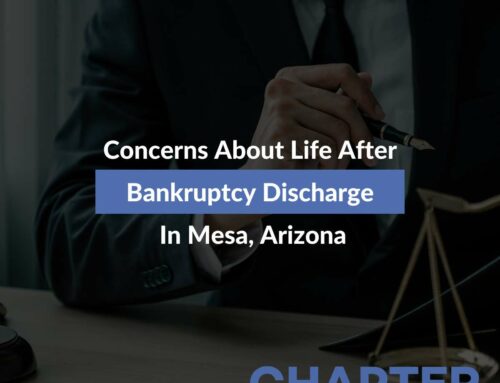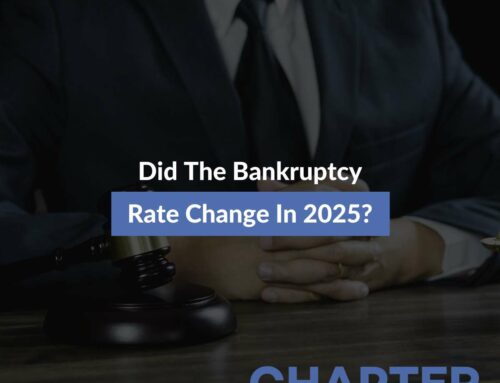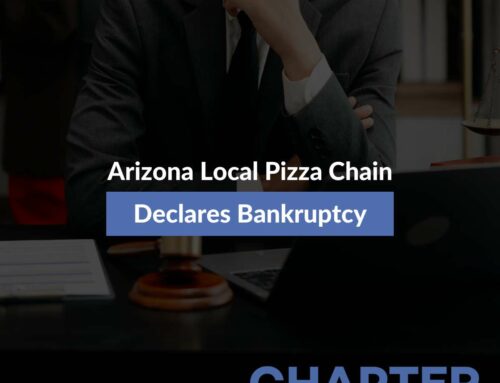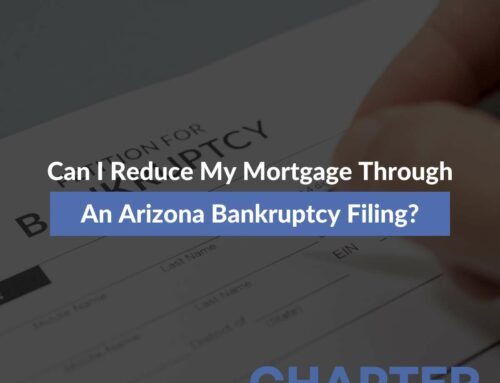Now more than ever, investing is both vital to a solid financial plan and can also be extremely risky. As the cost of just about everything increases, more and more businesses are starting to fold. This is causing investors to look for secure forms of investment that have guaranteed returns. Certificates of Deposit can suit the needs of those looking for a secure investment, but they usually aren’t funded enough to bring someone out of a financial emergency, if necessary. When debts pile up and creditors close in, bankruptcy can be an effective way to regain control and start over with a clean slate. But does filing for bankruptcy automatically mean the loss of funds invested in CDs? Read on to learn more about Arizona’s bankruptcy exemptions and if they can be used to protect CDs in chapter 7 bankruptcy. If you are seeking bankruptcy representation in Phoenix, Mesa, or Tempe, call 480-405-1010 for your free consultation with Chapter Bankruptcy Lawyers.

What Is a CD?
Here, a CD is a certificate of deposit. This is a special type of savings account that is offered by most banks and credit unions. Funds deposited into a CD account have a term, or a set amount of time they should be held in the account. Common terms range from 3 months to 5 years. There can be penalties and fees for withdrawing from a CD before the term has expired. When a CD reaches the end of its term, it is considered to be “matured.” However, funds in these accounts will generally earn a higher interest rate than traditional savings accounts. While they have a lower return rate than stocks and bonds, they are considered a safer option because of their guaranteed returns.
Most CD accounts are at a fixed interest rate, so they can’t show decreased returns if the market goes south. There are specific types of CDs that have adjustable interest rates. A variable rate CD changes based on the index rate. A bump-up CD allows the user to increase their rates once during the term, and their rate can not go down. Most investors who use CDs make sure their financial institution is backed by the FDIC in the rare event that the bank fails.
Exemptions & Certificates Of Deposit
When a debtor files for bankruptcy, they must list all of their debts and assets in their petition, including investment accounts like CDs. The debtor must apply exemptions to protect all of their assets. Any assets that are left unprotected could be used to pay bankruptcy debts. Therefore, if someone is planning to file for bankruptcy but has funds in one or more CDs, they will either need to find exemptions to protect those funds or risk losing them to the bankruptcy trustee.
Many states gives bankruptcy debtors the option between using exemptions from the state in which they reside or using the federal bankruptcy exemptions. Arizona does not allow the option of using federal bankruptcy exemptions. This is unfortunate for a potential bankruptcy debtor with one or more CDs because the federal exemptions have a wildcard exemption. A wildcard exemption is an exemption that can be used on any asset the debtor wishes, including a CD. Arizona does not have a wildcard exemption.
The money benefits that are protected in an Arizona bankruptcy filing are limited. Arizona’s bank account exemption is only $300, and it can only be applied to one bank account- most debtors choose to apply this exemption to their standard checking account. A bankruptcy debtor can protect other types of investments in an Arizona bankruptcy filing, such as a 401(k) or a 529 college savings plan, but these exemptions can’t be applied to protect the funds from a CD. Here, the debtor might want to spend the funds from a CD before filing for bankruptcy if they will not be able to protect it. The debtor should spend those funds on reasonable expenditures and not luxury items that could be unprotected and subject to seizure by the trustee anyway. If possible, the debtor can wait for their CD to mature before withdrawing the funds, spending them and filing for bankruptcy. If the debtor has an emergency situation that they need to stop with bankruptcy, like a vehicle repossession or home foreclosure, it may require filing immediately and surrendering the CD.
Some of the other exemptions that are available for Arizona bankruptcy debtors include:
- Homestead exemption: $400,000
- Household goods and furnishings: $15,000
- Motor vehicle: $15,000
- Food, fuel, and provisions: Six months’ worth
- Wearing apparel: $500
- Musical instruments: $400
- One watch: $250
- Firearms: $2,000
- Engagement and wedding rings: $2,000
- Personal library: $250
Some of these exemptions double in value for married couples while others do not. If you have more questions or concerns about applying exemptions in an Arizona bankruptcy case, you should discuss your situation with a seasoned professional. For your free consultation by phone with Chapter Bankruptcy Lawyers, call 480-405-1010 to schedule.
Early Withdrawal Penalties
If you are concerned about losing the funds in a CD due to a bankruptcy filing, early withdrawal may be one of the options you are considering. Incurring these penalties is never ideal, but it could be preferable to losing the funds to your trustee or losing an asset to creditor collection due to a delayed bankruptcy filing. The penalties for withdrawing from a CD before its term expires will vary based on the financial institution providing the account. Often, the EWP, or early withdrawal penalty, is based on how many months before the term expiration that the withdrawal occurs. It will also be based on how long the term was supposed to be. For example, the EWP for a CD with a 1-year term might be 3 months’ worth of interest, and six months’ worth of interest for a CD with a 3-year term. Long term CDs could have an EWP as high as one year’s worth of interest. Typically, EWPs shouldn’t come from the user’s principal, or initial deposit, but it can happen with some financial institutions. If you have funds in a CD, you will need to review your agreement to see what penalties will apply if you complete an early withdrawal.
Zero Down Bankruptcy In Phoenix & Mesa
Using or protecting your funds in a CD is just one of countless potential issues that could be relevant in your bankruptcy filing. One of the advantages of retaining a bankruptcy firm to handle your case is that they can help you navigate these issues and get the most out of your bankruptcy filing. A bankruptcy team can make sure your case is filed correctly so you can feel secure and confident about your decision. Our office offers flexible payment plan options, and many of our chapter 7 bankruptcy clients qualify for post-filing payment plan options starting as low as zero dollars down. Clear debts, get creditors off your back, and start working towards rebuilding your credit, all with zero dollars down. Your payment plan includes 0% interest for 12 months. To learn more about filing for bankruptcy in Phoenix and Mesa for zero dollars down with Chapter Bankruptcy Lawyers, call 480-405-1010.
CHAPTER BANKRUPTCY LAWYERS
Email: [email protected]
Website: www.chapterbankruptcylaw.com
Mesa Office
3707 E Southern Ave
Mesa, AZ 85206
Office: 480-405-1010
Tempe Office
4500 S Lakeshore Dr #300
Tempe, AZ 85282
Office: 480-562-6145







